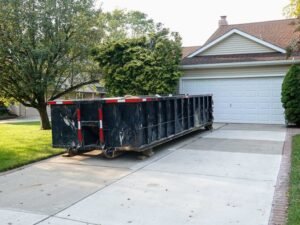Termites, known as “silent destroyers,” can cause significant damage to homes by feeding on wood and cellulose. Their destruction often goes unnoticed for months or even years. Prevention is crucial, as stopping termites before they invade is far more cost-effective than dealing with an entire infestation and costly repairs.
Effective Termite Control involves simple yet powerful steps that homeowners can take independently. Prevention can make your home less inviting to these destructive pests. Let’s explore a few easy strategies that will help make your property less attractive to termites and protect it from potential damage.
Create a Barrier by Removing Wood-to-Ground Contact
Termites thrive when wooden structures come into direct contact with soil. This provides them with an easy path into your home’s wooden framework. Whether it’s your deck posts, siding, or other wooden components, keeping them elevated above the ground is essential to termite defense.
Metal or concrete supports for decks and other wooden elements should be used to raise them above the soil. Avoid piling firewood or other wood materials too close to your house. These practices significantly reduce the likelihood of termites accessing your property via wood-to-ground contact.
Fix Leaks and Control Moisture Around Your Home
Moisture attracts termites, and a moist environment is what they need to thrive. Leaky pipes, clogged gutters, and poor drainage create conditions perfect for termites settling in. Water damage can also weaken wooden structures, making them even more vulnerable to termites’ attacks.
Regularly inspect your plumbing for leaks, and ensure gutters are cleaned and debris-free. Proper drainage around your home will also help prevent water from accumulating near your foundation. These simple measures will discourage termites and keep your home dry and safe from other forms of water damage.
Tidy Up Your Yard to Deter Termites
Your yard plays a significant role in preventing termites from entering your home. Overgrown trees, bushes, and piles of organic material like mulch and leaves provide shelter and food for termites. A well-kept yard ensures that termites have no place to hide or feed, which makes your home less inviting.
Make a habit of trimming trees and shrubs, removing fallen branches and leaves, and ensuring that mulch is kept away from your home’s foundation. Removing old stumps or dead trees in your yard will eliminate potential termite food sources. A neat and dry yard makes it much harder for termites to thrive.
Seal Cracks and Gaps in Your Home’s Exterior
Even the most minor cracks or gaps in your home’s exterior can give termites an entry point. These pests can squeeze through tiny openings around windows, doors, and the foundation. If you don’t seal these gaps, termites will have an easy way into your home to begin their destructive feeding habits.
Inspect your home for cracks, especially in foundation, crawl spaces, or around window and door frames. Use caulk or weatherproof sealant to close these gaps and keep termites from entering. Properly sealing your home is a simple and effective way to prevent termite problems.
Schedule Professional Termite Inspections and Treatments
Even the most diligent homeowner may overlook early signs of a termite infestation. Routine professional inspections are key to catching issues early. Pest control experts are trained to detect subtle signs of termite activity, even in hard-to-reach areas.
Regular inspections and treatments can prevent damage by addressing infestations before they escalate. Additionally, specialists can offer tailored monitoring services, providing peace of mind and reducing the risk of costly damage to your home.
Termite control is essential for preserving the integrity of your home. By eliminating wood-to-ground contact, fixing leaks, maintaining your yard, sealing cracks, and scheduling regular inspections, you can make your home far less attractive to termites. Implementing these strategies will significantly reduce your chances of an infestation and protect your home from costly damage.










